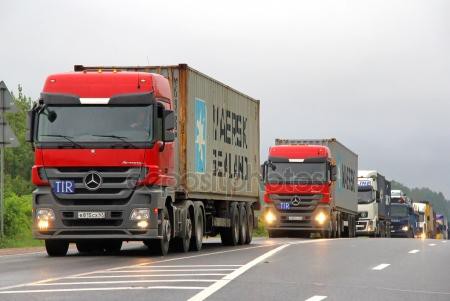Legal Blog
Trucking Accidents 101: Who is At Fault?
Trucking accident deaths rose 2% in 2016 to 4,400 from a year prior. These accidents involved trucks and buses, and while overall crashes fell 41% between 2002 and 2009, they quickly increased 62% by 2015 to 97,000. Accidents rose dramatically in 2016, rising to 119,000.
Federal laws are responsible for the governing of the truck industry under Title 49 of the Code of Federal Regulations.
The Federal Motor Carrier Safety Administration and the Department of Transportation regulate the industry. On a state level, every state has its own department of transportation with its own rules and regulations for the trucking industry.
But when truck accidents occur, who is responsible?
Who is Responsible in a Trucking Accident?Trucking accidents are often very severe or deadly. If a driver has been in an accident with a big rig, there are several parties that may be held liable for the victim's injuries:
- Manufacturer. If the vehicle had a defect, it's possible that the manufacturer of the vehicle will be held liable for the injury. Perhaps a defect existed in certain tires that caused them to burst in certain weather conditions. In this case, the manufacturer may be held liable if they knew of the issue and failed to correct it.
- Shipper or Loader. Improper loading is possible, and if this improper loading led to cargo spilling out of the truck and causing injury, these individuals may be held responsible.
- Owner. The owner of the truck or trailer may be held liable.
- Leasor. If a person is leasing the truck or trailer from an owner, he or she may also be held liable for the accident.
Of course, if the driver was at-fault and didn't adhere to the rules of the road or was under the influence of drugs or alcohol, he or she may also be held liable for the accident.
Several companies are often involved in these types of accidents, and determining which insurance company is going to pay for the damages is difficult. The leasing company may claim that the trucking company is responsible, and the hauling company may blame the trucking or leasing company.
Federal laws are such that (and this wasn't always the case) a trucking company can now be held liable for the argument. The company owning the trucking permit can be held responsible for all accidents, whether or not the lease has the trucking company's name on it. If the driver is working as an independent contractor, the trucking company can still be held liable for the accident.
But there are many parties involved in these cases, and no one is going to want to take the responsibility of paying out a claim. Complex and lengthy, lawyers will spend a lot of time investigating an accident and finding proof of why the accident occurred to pinpoint who is truly liable.
It's also possible that the opposing party was responsible for the accident, and it is this party that will be held responsible. In this case, it may be the opposing party that has to pay damages and not the trucking company, manufacturer or driver.


Comments